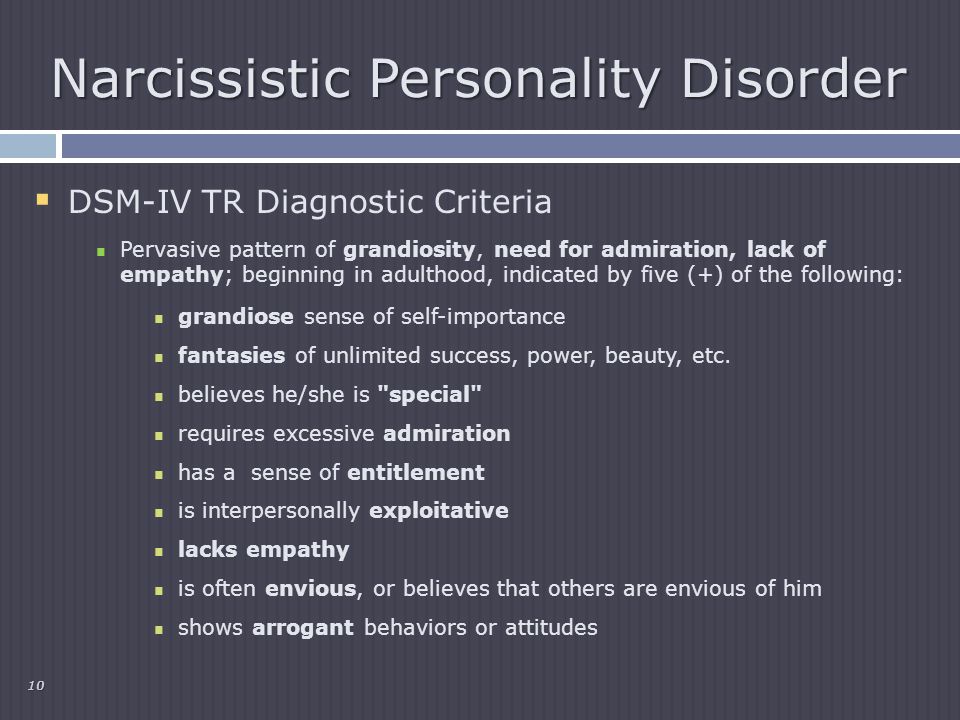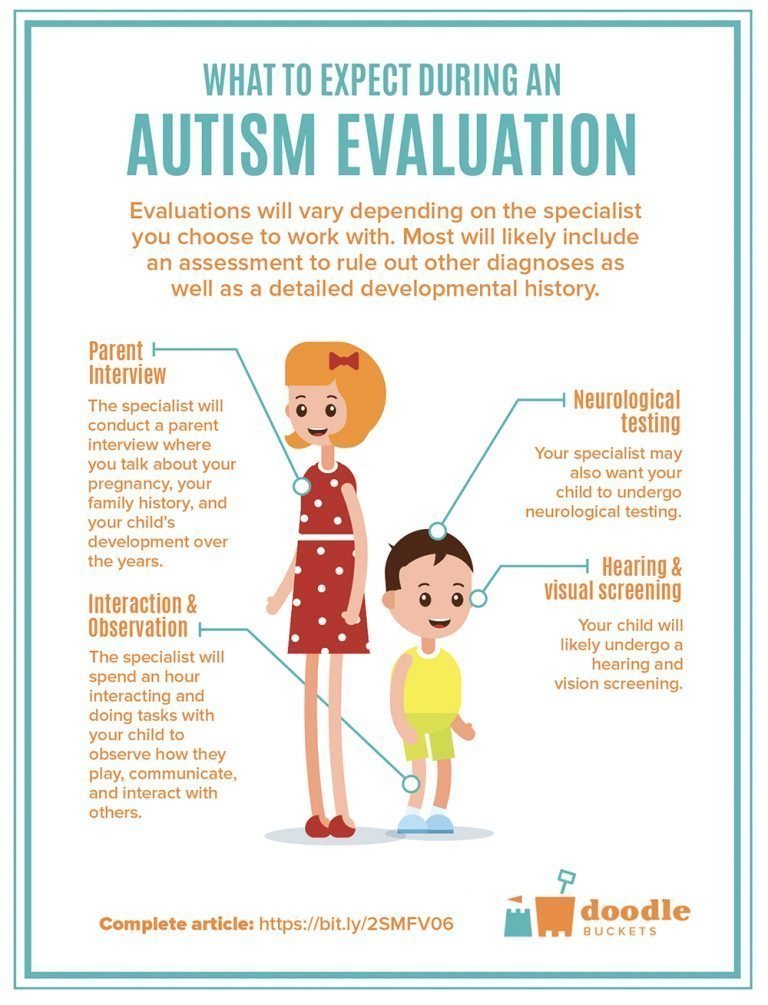Histrionic narcissistic personality disorder
Histrionic Narcissists: Sex, Lies, and Manipulation
Cluster B disorders are a collection of negative traits organized into four classifications: narcissism, histrionic, borderline, and antisocial personality disorders. Personality disorders as a whole are described as enduring, maladaptive patterns of thoughts and/or behaviors that deviate from one’s culture (APA, 2013). These thoughts, beliefs, and actions are inflexible and overwhelmingly negative and pervasive.
Despite our best efforts, we all have negative traits and unhealthy habits. What makes a trait pathological is the inability and unwillingness to change and improve. Even the kindest person on the road to sainthood can lash out in a fit of anger and ego. The act of being human comes with free will of thoughts and actions. We all have the innate ability to be a narcissist; however, what separates non-narcissists from the crowd is the element of self-control and choice. We can choose to use people for our own intentions and then discard them; we choose to lie and hide; we choose to cheat and sneak around.
This is one reason why the diagnosis traits for Cluster B disorders are so low: the individuals with these problems do not seek help because they don’t believe they need help in the first place. Of course, to be clinically diagnosed with a specific disorder one must have a specific number of signs and symptoms. An individual can have traits of narcissism but not be officially classified as a narcissist.
Links Between HPD & NPD
Narcissism or narcissistic personality disorder (NPD) is most easily identified by the individual’s lack of empathy and overwhelming ego. However, many victims of narcissism report their abuser’s sexuality and emotions as being sharpened into weapons. These overtly sexual and dramatic individuals have what the American Psychiatric Association calls histrionic personality disorder (2013). Whereas narcissistic personality disorder is predominantly diagnosed in men, histrionic disorder (HPD) is diagnosed primarily in women. As with most personality disorders, histrionic individuals cannot be cured by prescription medications.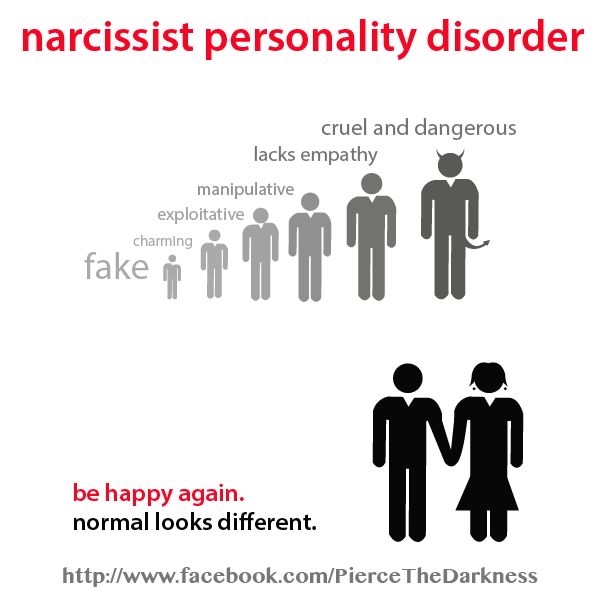 Only the co-morbidities, such as depression and anxiety, can be treated. So whereas the depression can be lifted with the right treatment plan, it won’t do anything for the person’s egotistical actions or cold behaviors. The same goes for histrionic personality disorder.
Only the co-morbidities, such as depression and anxiety, can be treated. So whereas the depression can be lifted with the right treatment plan, it won’t do anything for the person’s egotistical actions or cold behaviors. The same goes for histrionic personality disorder.
Histrionic personality disorder has several similarities to narcissism but also distinct differences. The use of theatrics, emotions, and sexuality stands in stark contrast from the cold and egotistical narcissist. However, many of the hallmarks overlap. Like positive personality traits such as openness or conscientiousness, negative personality traits can also overlap across disorders. Just because an individual displays several traits of narcissism doesn’t mean they also can’t act with traits of histrionic disorder.
Source: RODNAE Productions/Pexels
Histrionic individuals have wildly exaggerated emotions and an overwhelming need to be noticed. In fact, the term histrionic means “dramatic” and “theatrical.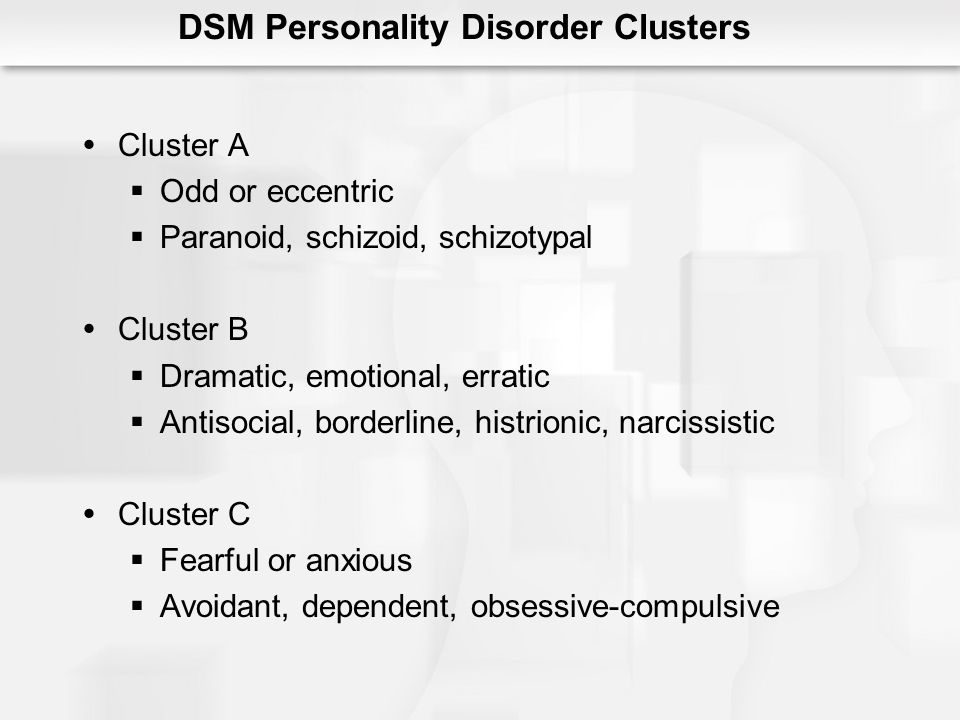 ” These people are well-known drama queens and busybodies who can’t handle being left outside of the circle of attention. The self-esteem of histrionics relied heavily on the opinions of others and can wax and wane according to their reputation. When they fall from grace, histrionics are more at risk for depression, crying fits, and desperation to turn the story around in which they are the victim. Narcissists, on the other hand, may become angry and challenging and generally be stupefied by the negative public opinion. They were—up until this moment—untouchable. If narcissists keep their negative self-image hidden and covered up by an overblown ego, then histrionics wear their self-centered hearts on their sleeves.
” These people are well-known drama queens and busybodies who can’t handle being left outside of the circle of attention. The self-esteem of histrionics relied heavily on the opinions of others and can wax and wane according to their reputation. When they fall from grace, histrionics are more at risk for depression, crying fits, and desperation to turn the story around in which they are the victim. Narcissists, on the other hand, may become angry and challenging and generally be stupefied by the negative public opinion. They were—up until this moment—untouchable. If narcissists keep their negative self-image hidden and covered up by an overblown ego, then histrionics wear their self-centered hearts on their sleeves.
Both narcissists and histrionics may use threats of suicide as an attention grab or a way to obtain sympathy and forgiveness. Neither type of individual can have a normal relationship for very long. Histrionics wear their partners out with their rapid mood swings; narcissists break down their partners with abuse and confrontation; both classifications generally exhaust the ability of friends and lovers to fulfill their grandiose demands for attention.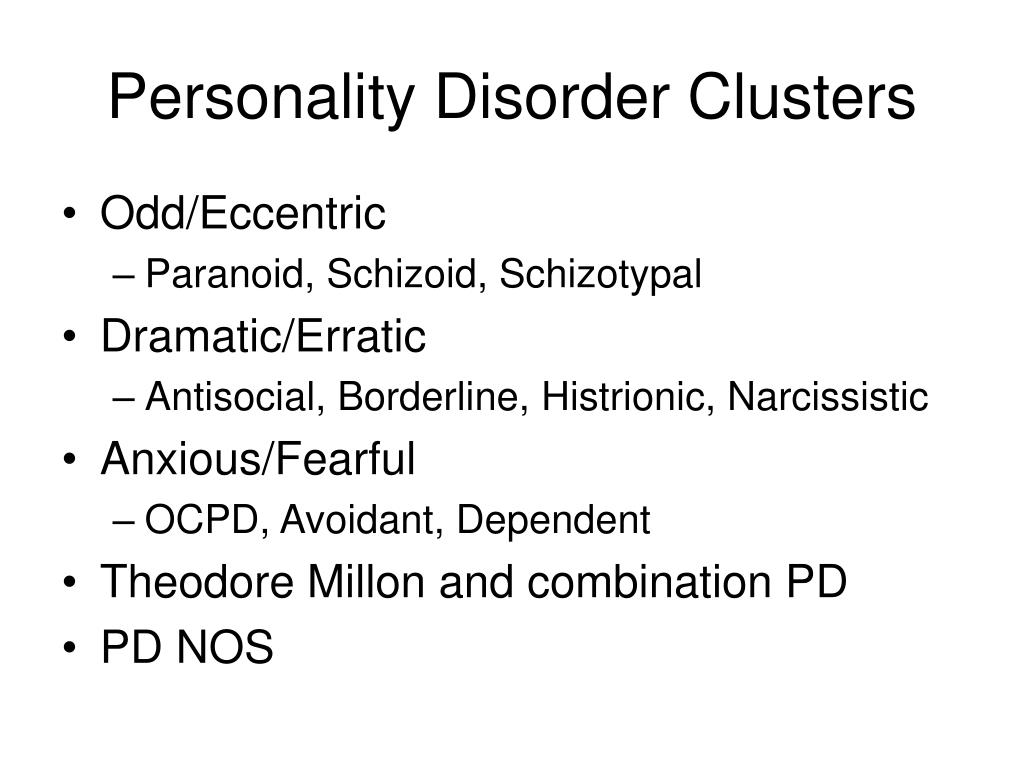
Sexuality as a Weapon
A major distinction between histrionic and narcissism is the use of sexuality. Narcissists are known to be more prone to cheating in their personal relationships, but histrionics are far more overtly sexually exploitative and provocative. Histrionics use sex and seduction to solve virtually any problem that arises and bring the attention back to them; narcissists use their sex as a method of control. A narcissist cheats because they feel they can, they deserve it, or they need something done for them in return. In contrast, a histrionic will engage in cheating to fulfill a desperate need for attention that they believe they aren’t getting from their partner. Regardless of whether the person is a narcissist or a histrionic, the cheating is not their fault. Jack recalls when he caught his ex-wife cheating. “She had been cheating for years with different men. She said it was because I didn’t pay enough attention to her and these men did, and they made her feel beautiful and worthy.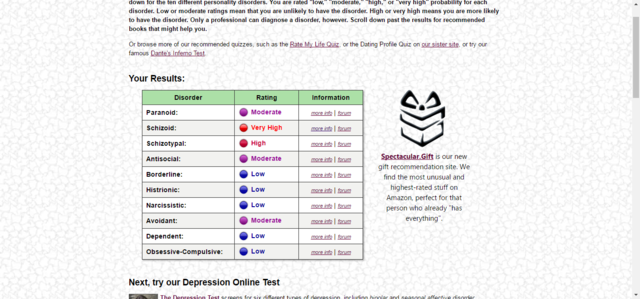 The cheating was my fault because I didn’t make her feel beautiful.”
The cheating was my fault because I didn’t make her feel beautiful.”
Anthony’s ex-wife, in comparison, attempted to deny the charges when presented with the evidence of her cheating but also took on the role of the wronged party. Narcissists are expert liars and actors and can maintain their false persona much better and for longer periods of time than a histrionic. Anthony recalls that eventually she began flaunting her cheating instead of being embarrassed by it. “Cheating wasn’t her character flaw; it was mine somehow. She used it to belittle me and make herself the poor victim,” Anthony says.
Source: Nappy/Pexels
Again, keep in mind that to be diagnosed a histrionic, one must check a specific number of boxes of the diagnostic criteria. Being confident and in control of your sexuality does not make you a histrionic; likewise, being overly dramatic is also not a way to diagnose someone as a histrionic. Someone can be sexual and seductive without being histrionic, and not all cheaters are suffering from histrionic personality disorder.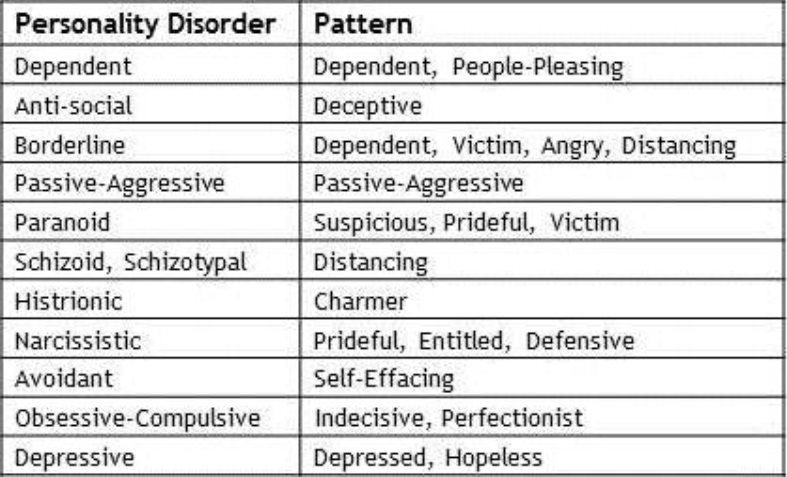
Female narcissists are particularly dangerous and use their sexuality as a weapon to straddle the fine line between NPD and HPD. Histrionic narcissists use their seductiveness and even reproductive abilities to gain control of a relationship, maintain the upper hand, or just simply to hurt someone. Histrionic women cross into narcissistic territory through abuse of power and gender roles and the exploitation of relationships. Using children, pregnancy, and other family members to obtain what they want is never out of the realm of possibilities for a histrionic narcissist.
7 Signs of An Over-Emotional Histrionic Narcissist
Source: Shutterstock
The Mayo Clinic research group defines Narcissistic Personality Disorder (NPD) as “a mental condition in which people have an inflated sense of their own importance, a deep need for excessive attention and admiration, troubled relationships, and a lack of empathy for others. But behind this mask of extreme confidence lies a fragile self-esteem that's vulnerable to the slightest criticism.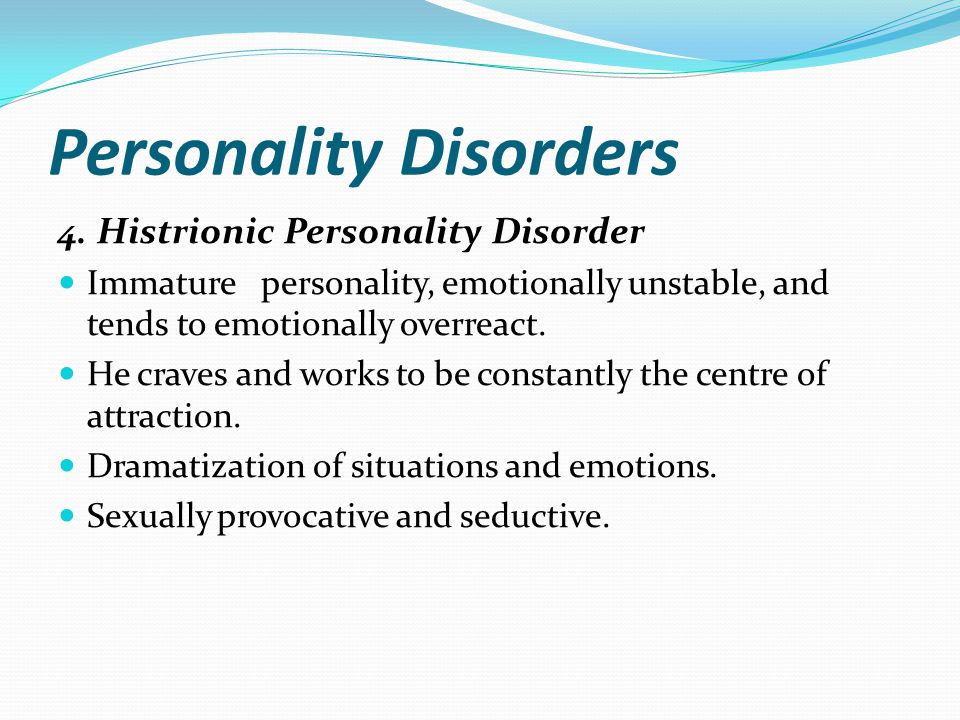 ”
”
WebMD identifies Histrionic Personality Disorder (HPD) as one of the “‘Cluster B’ or ‘dramatic’ personality disorders. People with these disorders have intense, unstable emotions and distorted self-images. For people with HPD, their self-esteem depends on the approval of others and does not arise from a true feeling of self-worth. They have an overwhelming desire to be noticed, and often behave dramatically or inappropriately to get attention.”
Reasons for both NPD and HPD are complex and deep-seated, and often involve childhood or early adulthood injuries and traumas. In serious cases, professional mental health counseling may be needed (and is recommended) to diagnose and treat the disorders.
There are certain overlaps in symptoms between NPD and HPD, below are seven signs of an over-emotional histrionic narcissist, with references from my books How to Successfully Handle Narcissists and A Practical Guide for Narcissists to Change Towards the Higher Self.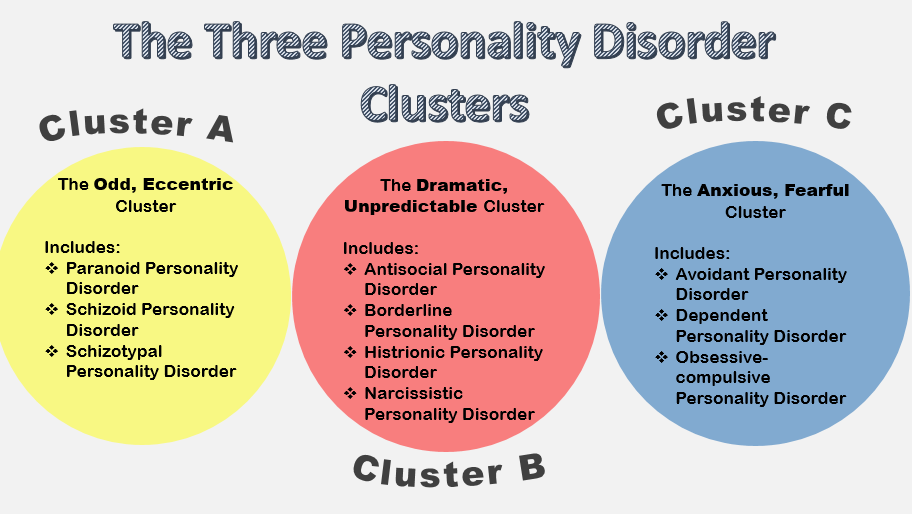 While some people may occasionally show the traits below, which might not be a major issue, a histrionic narcissist will routinely display one or more of the following pathologies (dysfunctions), while causing substantial distress and harm to others and oneself.
While some people may occasionally show the traits below, which might not be a major issue, a histrionic narcissist will routinely display one or more of the following pathologies (dysfunctions), while causing substantial distress and harm to others and oneself.
1. Dramatic Negative Emotions (High Dramas & Melt-Downs)
Histrionic narcissists often have the tendency to exhibit overly dramatic negative emotions when they don’t receive the attention, appreciation, or entitlement they believe they deserve. This may range from not getting quick customer service, to momentary lack of attentiveness from a spouse, to being told “no” when seeking an “exception to the rule”, or other instances when their self-imagined privileges are not being catered.
Histrionic narcissists are frequently unreasonable in their demands, inequitable in the way they treat people, insensitive to the difficulties of others, and disproportional in their emotional response. Whether it’s intense anger (narcissistic rage) or manic outbursts (histrionic drama), they often perceive a lack of attentiveness and deference as a threat to their self-esteem, and respond with hostility and even aggression.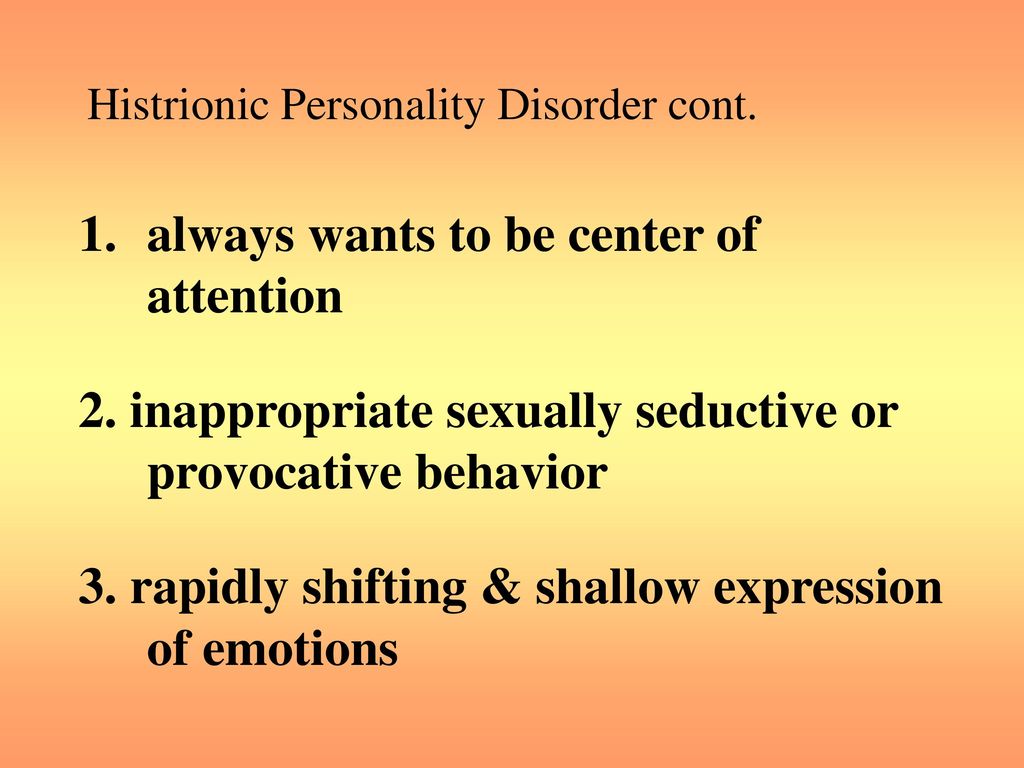 They overwhelm their victims with intense negative drama (“going nuclear”), browbeating their victims with the hope of getting what they want.
They overwhelm their victims with intense negative drama (“going nuclear”), browbeating their victims with the hope of getting what they want.
2. Dramatic “Positive” Emotions (Superficial Charm & Seduction)
The flip side of displaying overly dramatic negative emotions to gain attention is to enact superficial “positive” emotions toward the same end. Here, the histrionic narcissist may instigate charm and seduction in order “win over’ their targets (thereby controlling their attention and compliance). Examples include insincere flattery, appeal to vanity and ego, fake friendliness and acceptance, exaggerated closeness and intimacy, promising positive rewards after dishing out negative treatment, etc.
Some histrionic narcissists are adept at switching between positive and negative emotions. If they don’t get the special attention they believe they deserve by being the superficial charmer, they may suddenly change tone and become the hostile aggressor.
3. Constant Need for Attention
A main reason for the overly dramatic behavior (both negative and “positive”) of the histrionic narcissist is the insatiable desire for attention and approval. However, behind this craving for “specialness” is often a fragile self-esteem with serious attachment, trust, and security issues. In relationships and in life situations, some histrionic narcissists enact “tests” to see whether people are willing to “take the extra-step” to serve, placate, or rescue them, thus affirming their brittle self-worth.
Unfortunately, the problem with constantly seeking validation from the outside is that one will never be truly happy with oneself on the inside. For the histrionic narcissist, the temporary satisfaction from external approval never lasts, and it’s never enough.
4. Self-Absorbed Egocentrism & Lack of Empathy
Since the histrionic narcissist’s primary focus in life is approval and self-gratification, other people’s thoughts, feelings and priorities are frequently disregarded with little or no consideration (unless the histrionic narcissist has something to gain from them).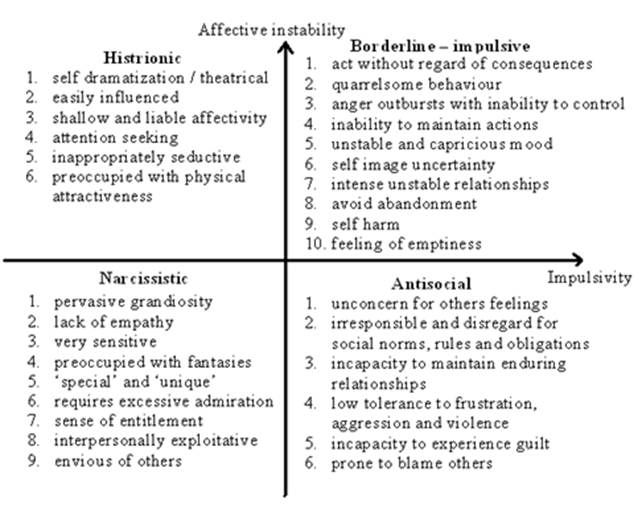 One of the most striking traits of some histrionic narcissists is their ability to witness human hardship (whether in personal life or society at large), shrug it off, and express distain or even contempt if others’ difficulties interfere with their selfish plans. Such is the entitlement and conceit.
One of the most striking traits of some histrionic narcissists is their ability to witness human hardship (whether in personal life or society at large), shrug it off, and express distain or even contempt if others’ difficulties interfere with their selfish plans. Such is the entitlement and conceit.
5. Boundary Violation & Manipulation
Many histrionic narcissists presume that the world revolves around them, and are quick to violate boundaries and manipulate people for personal gain. They often target individuals whom they can exploit psychologically, emotionally, physically, sexually, materially, and/or financially. Once the histrionic narcissist is done taking advantage of the victim, they may move on without a second thought. Histrionic narcissists do not relate. They use.
6. May be Unrealistic & Unreliable
Some histrionic narcissists are higher functioning, and can attain certain levels of personal and/or professional success in life (at least for a time).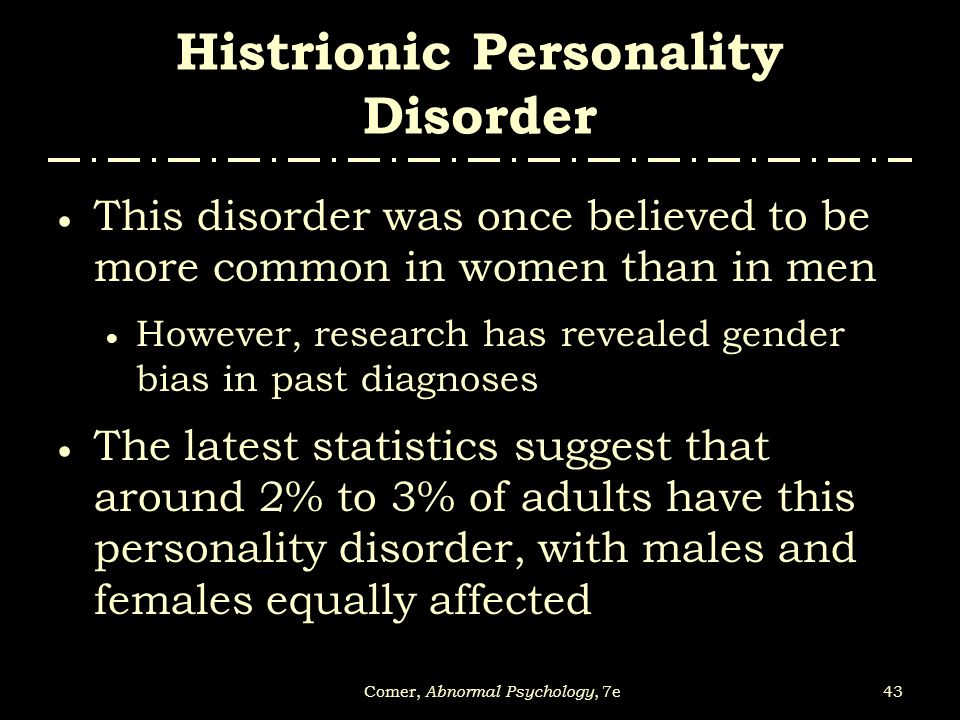 However, both higher and especially lower functioning histrionic narcissists may suffer from a lack of realism, which can make their decision-making impractical and impatient, resulting in disappointments and failures.
However, both higher and especially lower functioning histrionic narcissists may suffer from a lack of realism, which can make their decision-making impractical and impatient, resulting in disappointments and failures.
The desire for constant stimulation, instant gratification, and the tendency to be bored easily means some histrionic narcissists are unstable in their relationships, and unreliable in their commitments. Certain histrionic narcissists are prone to taking unreasonable risks, affecting their own and others’ well-being.
7. Difficulty Coping with Stress & Change
Everyone has ups and downs in life. Stress and change are part of the human experience. Many histrionic narcissists have great difficulty handling stressors which threaten their self-centeredness and perceived entitlements. Whether it’s personal relationships, workplace environment, or societal issues, histrionic narcissists adjust poorly when reminded that the world does not revolve around them, and most people will not put them on a pedestal.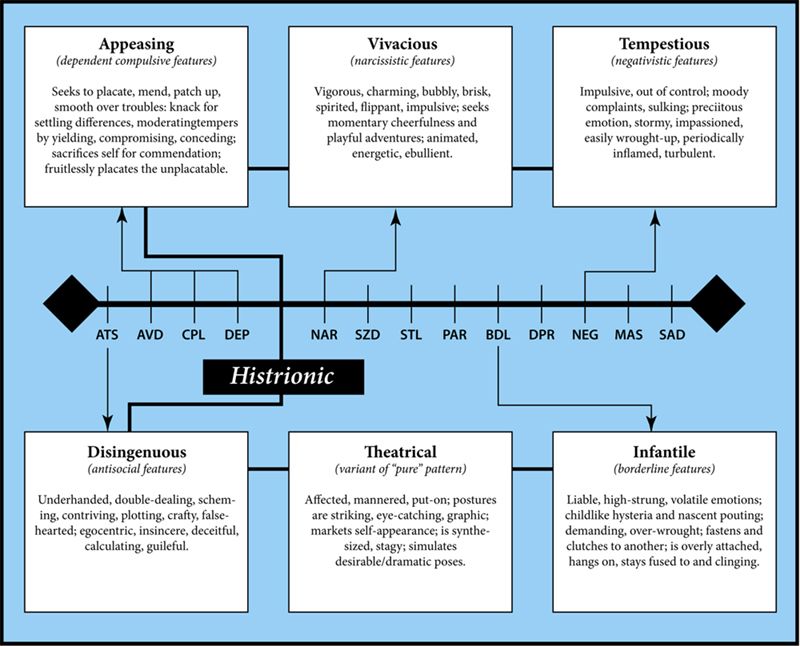 This is a bitter truth for histrionic narcissists, many of whom are “unable to let-up” and “unwilling to let go”.
This is a bitter truth for histrionic narcissists, many of whom are “unable to let-up” and “unwilling to let go”.
Histrionic narcissists may experience anxiety, depression, psychosis, or other mental health issues due to their inability to adjust and adapt in an ever-changing world. Until they become more self-aware and “join the human race”, they will continue to cause significant damage to others and themselves.
For tips on how to deal with histrionic narcissists, as well as how histrionic narcissists can change for the better, see references below.
© 2020 by Preston C. Ni. All rights reserved worldwide. Copyright violation may subject the violator to legal prosecution.
FGBNU NTsPZ. ‹‹Borderline mental disorders››
Hysterical personality disorder, or hysterical type of psychopathy. Hysterical reactions (stigmas, fainting, etc.) and other forms of hysterical behavior (extravagance, a tendency to dramatize trivial situations, the desire to be in the spotlight), characteristic of this type of psychopathy, are quite widespread and are often observed in psychopathic personalities of other types with the development of neurotic reactions or reactive psychoses.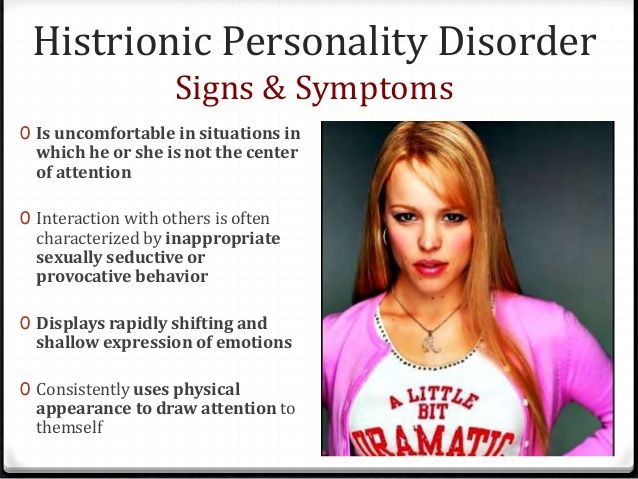 Hysterical psychopathy is characterized not only by psychogenic hysterical reactions and behaviors, but also by a certain personality type. These people are internally empty, sometimes empty and even miserable; external impressions play the greatest role in the balance of their mental life. They do not have their own opinion, their own established views on life; their judgments lack maturity, seriousness, and depth. Their behavior is not dictated by internal motives, but is calculated for an external effect. The desire to attract attention to oneself, the "thirst for recognition", a tendency to imitate, fiction and fantasies, capriciousness are noted in tantrums even in the preschool period. In adolescence and youth, along with this, their egocentrism, disorganization, a tendency to frivolous acts, wastefulness, and various adventures come out more clearly. They are incapable of systematic, hard work, prefer amateurish activity when choosing their occupation and succumb to tasks that require perseverance, thorough knowledge and solid professional training.
Hysterical psychopathy is characterized not only by psychogenic hysterical reactions and behaviors, but also by a certain personality type. These people are internally empty, sometimes empty and even miserable; external impressions play the greatest role in the balance of their mental life. They do not have their own opinion, their own established views on life; their judgments lack maturity, seriousness, and depth. Their behavior is not dictated by internal motives, but is calculated for an external effect. The desire to attract attention to oneself, the "thirst for recognition", a tendency to imitate, fiction and fantasies, capriciousness are noted in tantrums even in the preschool period. In adolescence and youth, along with this, their egocentrism, disorganization, a tendency to frivolous acts, wastefulness, and various adventures come out more clearly. They are incapable of systematic, hard work, prefer amateurish activity when choosing their occupation and succumb to tasks that require perseverance, thorough knowledge and solid professional training.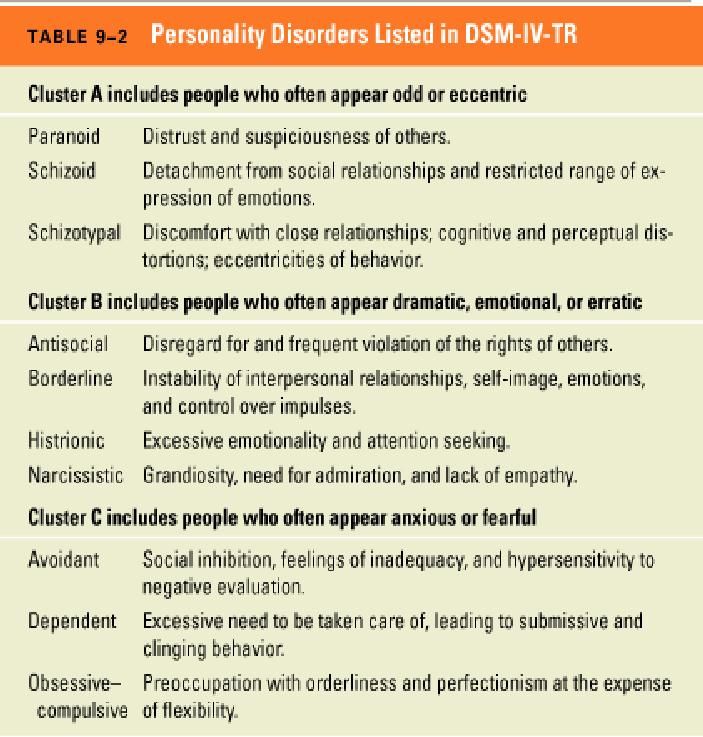 Most of all, they like an idle life with external, ostentatious splendor, various entertainments, and frequent changes of impressions. They willingly and selflessly perform the rituals of festivities and banquets, strive to follow fashion in everything, attend successful performances, “idolize” popular artists, discuss sensational books, etc.
Most of all, they like an idle life with external, ostentatious splendor, various entertainments, and frequent changes of impressions. They willingly and selflessly perform the rituals of festivities and banquets, strive to follow fashion in everything, attend successful performances, “idolize” popular artists, discuss sensational books, etc.
For the most part, they are gullible, easily attached to people. At the same time, a tendency to eroticize interpersonal relationships is often found [Yakubik A., 1982]; quickly fall in love, starting numerous, often short-lived novels, accompanied at first by violent manifestations of feelings. However, being fickle in their hobbies, they cool down just as quickly. In more rare cases, persistent ecstatic attachments are formed, which are formed according to the type of overvalued formations [Dubnitskaya E. B., 1979; Filts A. O., 1987].
As K. Jaspers (1923) points out, one of the main properties of hysterics is the desire to appear larger than they really are, to experience more than they are able to survive. Some try to emphasize their talent, while operating with very superficial information from various fields of science and art, others exaggerate their social position, hinting at close ties with high-ranking officials; others, without stinting on promises, talk about their vast possibilities, which in fact turn out to be the fruit of their rich imagination. Hysterics use everything possible to be in the spotlight: eccentricity in clothing, “flashy” forms of external behavior, unusual actions that contrast with generally accepted views, allegedly mysterious symptoms of an unknown illness, fainting, etc.
Some try to emphasize their talent, while operating with very superficial information from various fields of science and art, others exaggerate their social position, hinting at close ties with high-ranking officials; others, without stinting on promises, talk about their vast possibilities, which in fact turn out to be the fruit of their rich imagination. Hysterics use everything possible to be in the spotlight: eccentricity in clothing, “flashy” forms of external behavior, unusual actions that contrast with generally accepted views, allegedly mysterious symptoms of an unknown illness, fainting, etc.
A feature of the hysterical psyche is also the absence of clear boundaries between the products of one's own imagination and reality. Focusing on this property, P. B. Gannushkin emphasizes that the real world for a person with a hysterical psyche acquires a peculiar bizarre shape; the objective criterion for him is lost, which often gives those around him a reason to accuse such a person, at best, of lying and pretense. The hysteric perceives the processes in his own body and his own psyche in the same way. Some experiences completely escape his attention, while others, on the contrary, are evaluated extremely thinly. Because of the brightness of some images and ideas and the pallor of others, a person with a hysterical mentality very often does not see the difference between fantasy and reality, between what happened in reality and what was seen in a dream, or, more precisely, is not able to do it.
The hysteric perceives the processes in his own body and his own psyche in the same way. Some experiences completely escape his attention, while others, on the contrary, are evaluated extremely thinly. Because of the brightness of some images and ideas and the pallor of others, a person with a hysterical mentality very often does not see the difference between fantasy and reality, between what happened in reality and what was seen in a dream, or, more precisely, is not able to do it.
The prognosis for hysterical psychopathy in general cannot be considered unfavorable. In adulthood, with good social conditions and a working environment, in most cases, long-term and stable compensation is possible [Semke V. Ya., 1988]. During this period, the pathocharacterological structure of hysterical psychopathy largely coincides with the accentuated personalities of the “demonstrative” type described by K. Leonhard (1968). Compensated hysterical psychopathic personalities are infantile, youthfully graceful, with emphasized plasticity and expressiveness of movements. Among them there are people with a certain stage talent, artistic natures, but also poseurs and "dandies", dressed with exaggerated elegance. With age, they become smoother and more serious, acquire the necessary labor skills, but the elements of theatricality in behavior remain; First of all, this is reflected in the ability to make a good, favorable impression for oneself, to arouse sympathy, and if necessary, sympathy. Most fully in hysterical psychopathy, compensation processes occur in the case of a predominance of psychopathic manifestations of a tendency to various autonomic and hysterical paroxysms (spasms, a feeling of suffocation during excitement, globus hystericus, nausea, vomiting, aphonia, tremor of the fingers, numbness of the extremities and other sensitivity disorders). Already by the age of 30-35, such psychopathic personalities are sufficiently adapted to the real situation, they can correct their behavior. In life, these are emphasized obligatory people, diligent, successfully coping with their professional duties, maintaining fairly strong family ties.
Among them there are people with a certain stage talent, artistic natures, but also poseurs and "dandies", dressed with exaggerated elegance. With age, they become smoother and more serious, acquire the necessary labor skills, but the elements of theatricality in behavior remain; First of all, this is reflected in the ability to make a good, favorable impression for oneself, to arouse sympathy, and if necessary, sympathy. Most fully in hysterical psychopathy, compensation processes occur in the case of a predominance of psychopathic manifestations of a tendency to various autonomic and hysterical paroxysms (spasms, a feeling of suffocation during excitement, globus hystericus, nausea, vomiting, aphonia, tremor of the fingers, numbness of the extremities and other sensitivity disorders). Already by the age of 30-35, such psychopathic personalities are sufficiently adapted to the real situation, they can correct their behavior. In life, these are emphasized obligatory people, diligent, successfully coping with their professional duties, maintaining fairly strong family ties. However, with such variants of hysterical psychopathy, the risk of decompensation at involutionary age is more likely, which is often associated with a deterioration in the somatic condition (hypertension, coronary artery disease and other diseases) and menopause. Manifestations of decompensation (usually in the form of emotional instability, violent hysterical reactions and paroxysms) in more severe cases correspond to the clinic of involutional hysteria [Geyer T.I., 1925]. Along with increasing depression, asthenia, tearfulness, anxious fears for one's health, more persistent hypochondriacal symptoms, accompanied by various algias, conversion and vegetative disorders, may come to the fore.
However, with such variants of hysterical psychopathy, the risk of decompensation at involutionary age is more likely, which is often associated with a deterioration in the somatic condition (hypertension, coronary artery disease and other diseases) and menopause. Manifestations of decompensation (usually in the form of emotional instability, violent hysterical reactions and paroxysms) in more severe cases correspond to the clinic of involutional hysteria [Geyer T.I., 1925]. Along with increasing depression, asthenia, tearfulness, anxious fears for one's health, more persistent hypochondriacal symptoms, accompanied by various algias, conversion and vegetative disorders, may come to the fore.
The prognosis is less favorable in the case of a predominance in the structure of the hysterical personality of a tendency to pathological fantasizing. Such psychopathic personalities are distinguished by some authors into a separate group - pathological swindlers and pseudologists according to A.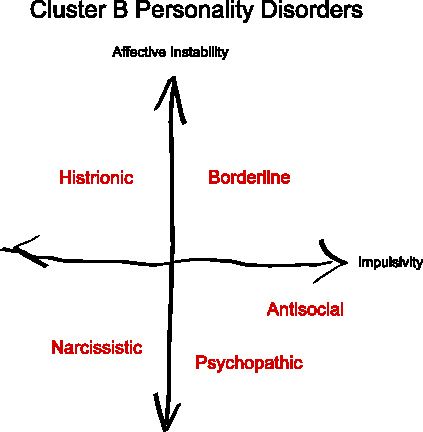 Delbruck (1891), mythomaniacs according to E. Durpe (1909), liars and deceivers according to E. Kraepelin (1915), pathological liars according to P. B. Gannushkin (1964). These people lie from a young age, sometimes without any reason or meaning. Some get so used to the situations created by their imagination that they themselves believe in them. Some can enthusiastically talk about journeys into the remote taiga as part of a geological expedition in which they have never participated; others, having no medical education, describe as if they performed complex surgical operations. Fantasies sometimes turn into self-incrimination with confessions to fictional crimes and even murders. Decompensation, usually quite frequent, occurs either already in the school years, or somewhat later, with the transition to independent activity. For the first time after starting a job or moving to a new place, they impress others as thoughtful, conscientious, enterprising, gifted specialists. However, their complete failure is soon discovered.
Delbruck (1891), mythomaniacs according to E. Durpe (1909), liars and deceivers according to E. Kraepelin (1915), pathological liars according to P. B. Gannushkin (1964). These people lie from a young age, sometimes without any reason or meaning. Some get so used to the situations created by their imagination that they themselves believe in them. Some can enthusiastically talk about journeys into the remote taiga as part of a geological expedition in which they have never participated; others, having no medical education, describe as if they performed complex surgical operations. Fantasies sometimes turn into self-incrimination with confessions to fictional crimes and even murders. Decompensation, usually quite frequent, occurs either already in the school years, or somewhat later, with the transition to independent activity. For the first time after starting a job or moving to a new place, they impress others as thoughtful, conscientious, enterprising, gifted specialists. However, their complete failure is soon discovered. They are extremely frivolous about the assigned work, incapable of systematic work, instead of real problems, they are busy with fantastic fictions. Compared to ordinary hysterics, as G. E. Sukhareva points out, pseudologists are more active in their desire to realize their plans. It's not always an innocent lie. More often, certain selfish goals are pursued, which leads to a collision with the law. A motley gallery of petty swindlers, soothsayers, marriage swindlers, charlatans posing as doctors, or extortionists who accept valuable gifts and cash advances for services that they can never provide is formed from among the pseudologists.
They are extremely frivolous about the assigned work, incapable of systematic work, instead of real problems, they are busy with fantastic fictions. Compared to ordinary hysterics, as G. E. Sukhareva points out, pseudologists are more active in their desire to realize their plans. It's not always an innocent lie. More often, certain selfish goals are pursued, which leads to a collision with the law. A motley gallery of petty swindlers, soothsayers, marriage swindlers, charlatans posing as doctors, or extortionists who accept valuable gifts and cash advances for services that they can never provide is formed from among the pseudologists.
Some taxonomies (DSM-IV) distinguish narcissistic personality disorder, having in common with hysterical psychopathy. The definition of "narcissus" goes back to Greek mythology (Narcissus fell in love 1 with his own reflection in the water and died while trying to hug him). Conceptualization of the concept "narcissistic" belongs to Z. Freud. Later, the concept of narcissism developed in the context of psychoanalytic research. The term "narcissistic personality disorder" was introduced by H. Kohut in 1968. Narcissistic and hysterical personality disorder bring together the features of demonstrativeness, a tendency to dramatize, a thirst for recognition, but significant differences are also found. Narcissistic personalities are characterized by pathological ambition, conceit, arrogance, a sense of superiority over others. "Narcissists" are always confident in their significance, correctness, cannot stand criticism, tend to exaggerate their knowledge and achievements (narcissistic falsification of reality according to H. Kohut, 1971). The ability to work effectively is often combined with the pursuit of universal attention and admiration. The choice of progression also corresponds to this goal: they are not satisfied with activities that do not promise quick fame and public recognition. If hysterical personalities retain the ability to care for their neighbors and love them, then narcissists are devoid of empathy, indifferent to the interests and feelings of others, “perceive others as a faceless applauding mass” [Svrakic D.
Freud. Later, the concept of narcissism developed in the context of psychoanalytic research. The term "narcissistic personality disorder" was introduced by H. Kohut in 1968. Narcissistic and hysterical personality disorder bring together the features of demonstrativeness, a tendency to dramatize, a thirst for recognition, but significant differences are also found. Narcissistic personalities are characterized by pathological ambition, conceit, arrogance, a sense of superiority over others. "Narcissists" are always confident in their significance, correctness, cannot stand criticism, tend to exaggerate their knowledge and achievements (narcissistic falsification of reality according to H. Kohut, 1971). The ability to work effectively is often combined with the pursuit of universal attention and admiration. The choice of progression also corresponds to this goal: they are not satisfied with activities that do not promise quick fame and public recognition. If hysterical personalities retain the ability to care for their neighbors and love them, then narcissists are devoid of empathy, indifferent to the interests and feelings of others, “perceive others as a faceless applauding mass” [Svrakic D.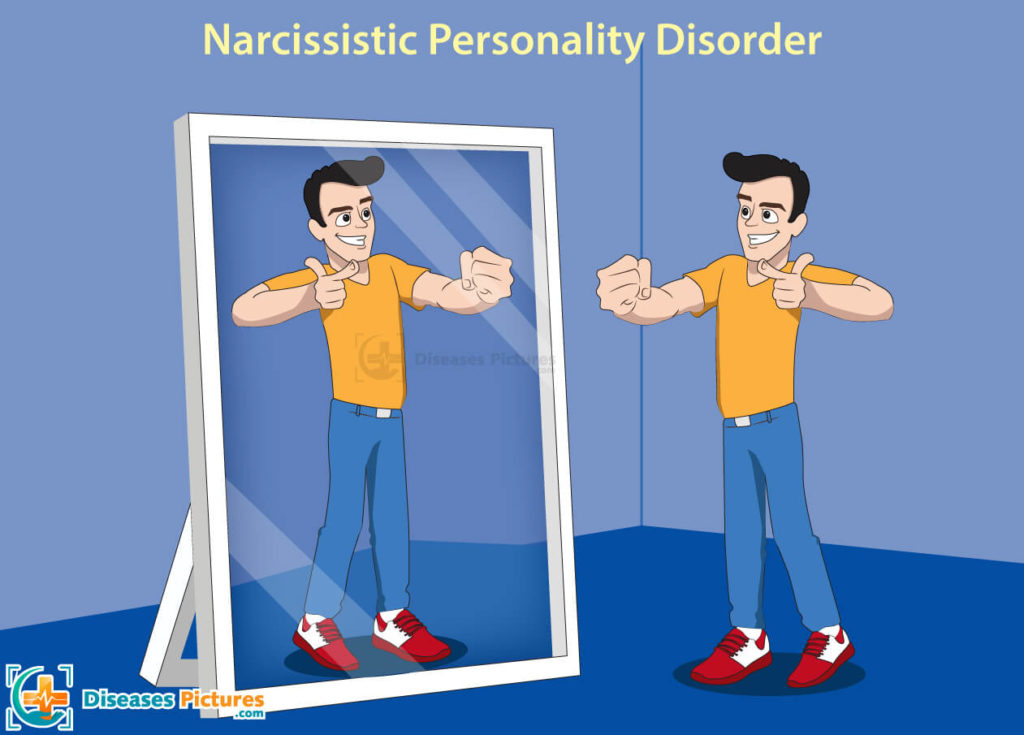 M., 1989].
M., 1989].
What is narcissistic personality disorder, how is it recognized and can it be corrected
The label "narcissist" is often used to refer to people who seem overconfident, spend a lot of time talking about themselves, their success and career. However, this feature is much more complicated than it seems. A sense of confidence, a desire to share our achievements, and a desire for praise are quite adequate traits inherent in many of us. But sometimes it develops into a manic obsession with oneself or narcissism, which greatly interfere with establishing social connections, building a career and maintaining healthy relationships with loved ones. Zaborona journalist Polina Vernigor figured out when to sound the alarm, how to identify narcissistic personality disorder, and how to deal with narcissists.
What is narcissism?
This is a feature of the psyche, in which a person considers himself better than others, as well as generally unique and unsurpassed. It's about craving gratitude or admiration, wanting to be the center of attention, and expecting special treatment.
It's about craving gratitude or admiration, wanting to be the center of attention, and expecting special treatment.
The Narcissistic Personality Inventory (NPI), developed in 1979, is the most common way to measure this trait. The scores range from 0 to 40. Healthy people who score just over half of the scores may seem very attractive, especially during the first meeting, but end up coming off as arrogant. Such people may have uncomfortable or stressful personal relationships, but at the same time they remain fundamentally healthy personalities.
- Honoré Daumier The Belle Narcissus, 1842
Is this normal?
Basically yes. In fact, this is why we use the term “healthy people” in the previous section: narcissism is a collection of traits, and as long as it remains only on the scale of a person’s character, it does not pose a big problem.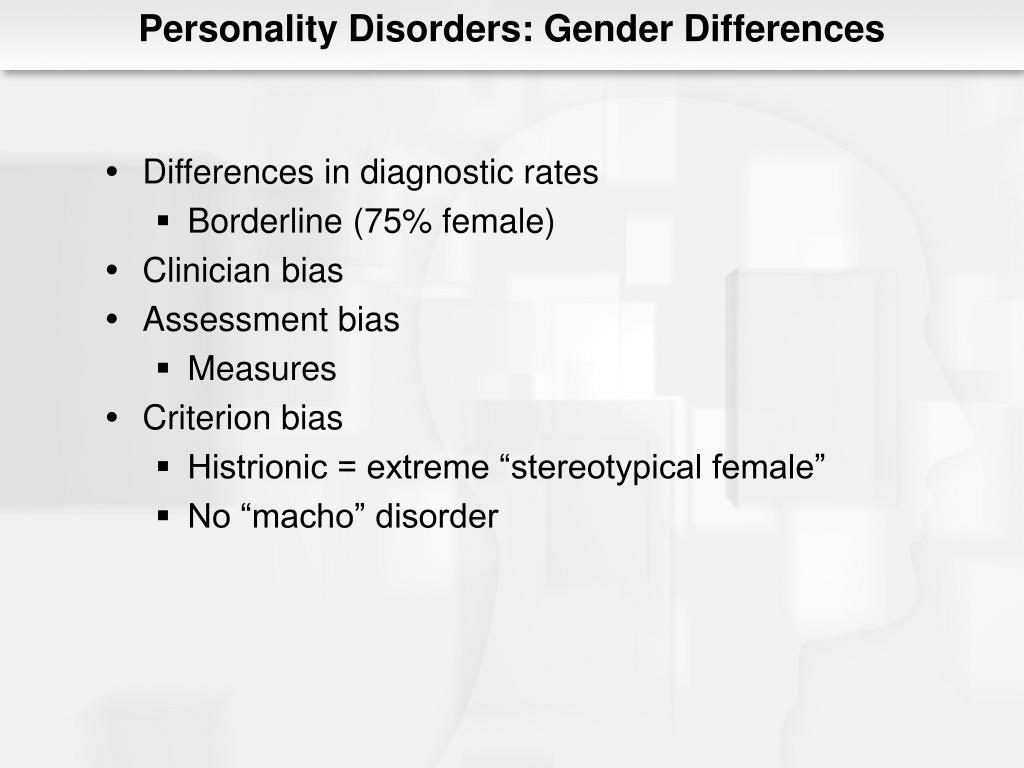 At least it does not require a decision in the office of a clinical psychologist - unlike narcissistic personality disorder.
At least it does not require a decision in the office of a clinical psychologist - unlike narcissistic personality disorder.
What is narcissistic personality disorder?
And this is a psychiatric diagnosis. People with narcissistic personality disorder (NPD) are in love with an idealized grandiose image of themselves. And they fall in love with this exaggerated self-image precisely because it enables them to avoid deep feelings of insecurity. But supporting their megalomaniacs takes a lot of work, and that's where manipulation and toxicity in relationships comes into play. People with narcissistic personality disorder are self-centered, lack empathy and consideration for others, and depend on praise and hobbies. They can be described as cocky, manipulative, selfish, and overly demanding. This way of thinking and behaving manifests itself in all areas of a narcissist's life, from work and friendships to family and love relationships.
There are many subtypes of NPD—some have been identified and validated by scientific research, while others have been informally named and popularized by various mental health professionals. Because of this, the number of narcissistic subtypes is difficult to count accurately. Although the subtypes cannot be clinically diagnosed, professionals still usually see patterns in the behavior of clients, so they deduce eight subtypes of narcissism.
Because of this, the number of narcissistic subtypes is difficult to count accurately. Although the subtypes cannot be clinically diagnosed, professionals still usually see patterns in the behavior of clients, so they deduce eight subtypes of narcissism.
- Salvador Dali Metamorphoses of Narcissus, 1937
Healthy narcissism. It is more positive than negative. The American Psychiatric Association has concluded that for a patient to be clinically diagnosed with narcissistic personality disorder, they must have at least 55% of the most common features of narcissism. At the same time, many of these features do not fit the classification of mental disorders. That is, if you have less than 55% of the signs of NPD, you are healthy. Psychiatrists believe that narcissistic qualities are inherent in any person to a certain extent. Recognition of your achievements, the desire to share them and receive praise are quite normal things, especially if they improve well-being.
Recognition of your achievements, the desire to share them and receive praise are quite normal things, especially if they improve well-being.
Grandiose narcissism. Such patients are characterized by an overestimation of their abilities, an inflated sense of self-worth and, in fact, an unrealistic feeling of their own superiority over other people. At the same time, grandiose daffodils can be charming, but they often lack compassion. They demand attention, they like to see others offended and confused.
Covert/vulnerable narcissism. Unlike grandiose narcissists, these people tend to be shy and modest. Representatives of this subtype are inhibited, depressed, hypersensitive to evaluations and suffer from chronic envy. They vitally need the recognition of people and protection from criticism. Often covert narcissists feel the most miserable in the world.
Malignant narcissism. Actually they are called malignant, not to be called evil, because it sounds a bit rude. But it is true: they are manipulators with evil intentions, showing signs of sadism and aggression. This is the most dangerous and harmful to others subtype. Throughout their lives, people suffering from this disorder improve their manipulation skills, and therefore, during the first meeting, they may seem very nice and kind.
But it is true: they are manipulators with evil intentions, showing signs of sadism and aggression. This is the most dangerous and harmful to others subtype. Throughout their lives, people suffering from this disorder improve their manipulation skills, and therefore, during the first meeting, they may seem very nice and kind.
Sexual narcissism. These patients are overly fond of their own sexual prowess. They may be obsessed with their sexual activity and need for sexual delight from others. Sexual narcissists are serial scammers who use sex to manipulate people and can be aggressive in bed.
Somatic narcissism. Somatic narcissists base their self-esteem on the body. They feel more beautiful, strong or healthy than others. Somatic narcissists are often obsessed with their weight and appearance, as well as criticizing the appearance of others.
- Illustration for "Spring of Narcissus" from "The Romance of the Rose", 1380s
Cerebral/intellectual narcissism.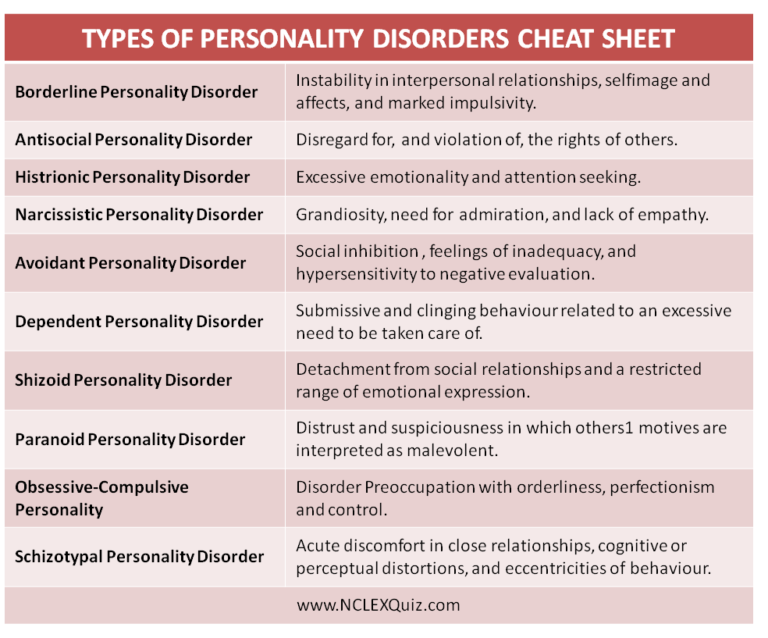 Such people derive their sense of self-worth from their minds. It is about the belief that they are smarter than everyone else. To feed their ego, they will try to make others feel stupid.
Such people derive their sense of self-worth from their minds. It is about the belief that they are smarter than everyone else. To feed their ego, they will try to make others feel stupid.
Spiritual narcissism. Such people often use their spirituality to justify harmful behavior and use spiritual jargon to present themselves in a better light and to show superiority. Often they use vulnerable people to make them believe in their own worthlessness and in the high spirituality of the narcissist himself.
I have NRL. What threatens me?
Narcissists find it difficult to build healthy social bonds. Since the narcissist is overconfident and believes that he is better than others, this can lead to risky behavior. At the same time, such people usually show low levels of empathy, sympathy, shame, and guilt. That is why narcissism does more harm to those who surround the narcissist.
How do I know if I'm talking to a narcissist?
There are the most common and recognizable signs. Remember that only a specialist can make an accurate diagnosis. However, you will need these characteristics to identify such a person in your environment and build a relationship with him that will not harm you.
Remember that only a specialist can make an accurate diagnosis. However, you will need these characteristics to identify such a person in your environment and build a relationship with him that will not harm you.
The main signs of daffodils
- Sensation of its own superiority over the other
- Manipulative behavior
- The need for admiration
- Sympathy
- Higher -dimensional concentration of attention to themselves
- Militia Other Minutiating Other Minutiating Other Military sensitivity to criticism
How to deal with narcissists?
The first thing to advise is to break off relations with narcissists, as they are not non-toxic. But there are many situations in which this advice will not work. There are several leading techniques that will help you protect yourself from the influence of such people and build safe communication with them.
Look at the root - Narcissists often try to create an ideal image of themselves. But if you always keep in mind who they really are and remember that they can manipulate or deceive, you will probably not be affected by their "charm".
But if you always keep in mind who they really are and remember that they can manipulate or deceive, you will probably not be affected by their "charm".
Talk about yourself and your feelings. This rule works if we are talking about a person from your close circle - a partner or someone from relatives. Narcissists often like to bring the interlocutor to emotions - do not let them do this, do not encourage their behavior. Instead, try to calmly and kindly say what you don't like. Do not blame - use "I-messages": not "you talk a lot about yourself", but "I would like it if you were more interested / interested in my affairs."
But if you notice signs of narcissism in your manager or work colleague, the best way to communicate is not to show emotions and not get into conflicts and arguments, because most likely the person is just waiting for it. If you give him this, then you will stimulate such behavior in the future.
- Caravaggio.
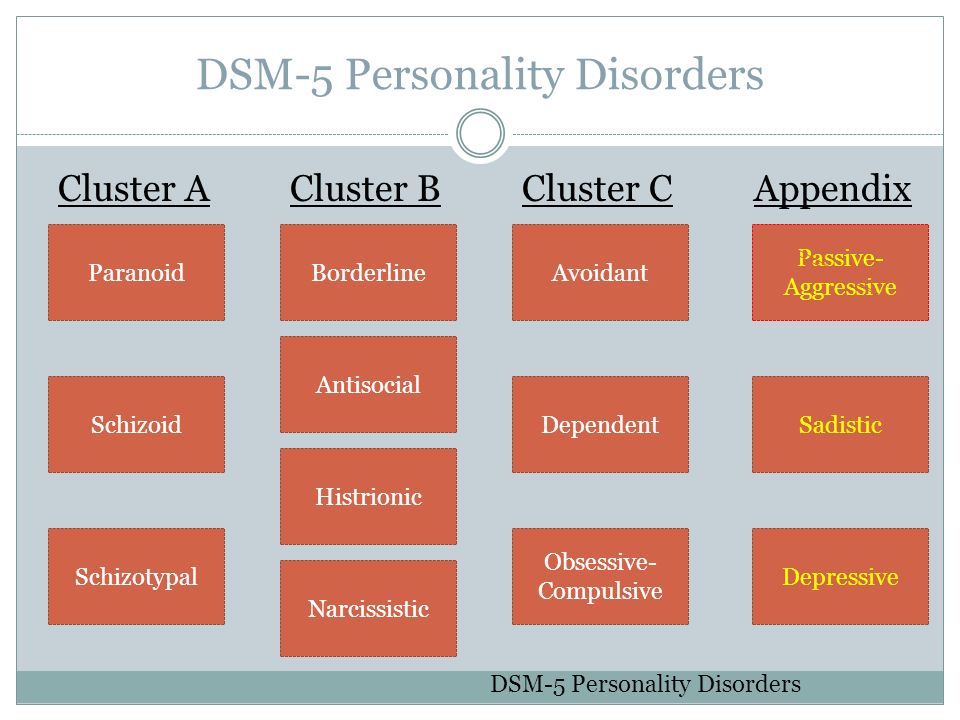 Narcissus, 1594-1596
Narcissus, 1594-1596
Stand up for clear boundaries. People with narcissistic personality disorder have a poor sense of personal space and boundaries: they may rummage through your belongings, enter your personal space without permission, or do something that will disturb you. In this case, psychologists advise setting ultimatums. For example: "If you don't get your car out of my parking space, I will have to call a tow truck." But at the same time, it is important to keep your promise in order to prove the seriousness of your intentions.
Do not fall for provocations. If the game doesn't go their way, narcissists often manipulate to make you feel awkward. For example, they may try to make you feel guilty or ashamed. Remember that these are just their rules of the game: you don't have to accept them.
Find a source of energy. Communication with a narcissist (especially if it is a malignant narcissist) is very draining emotionally.